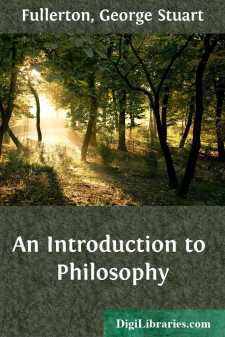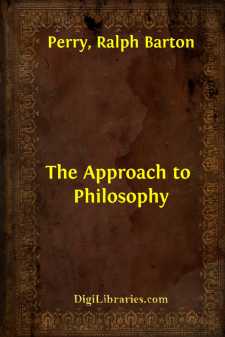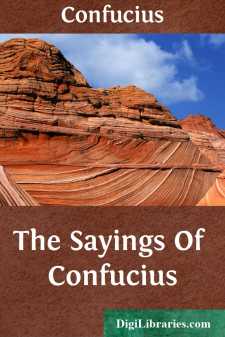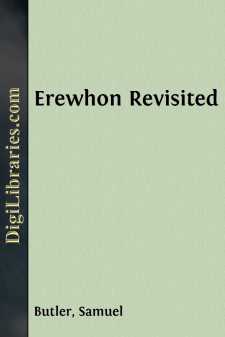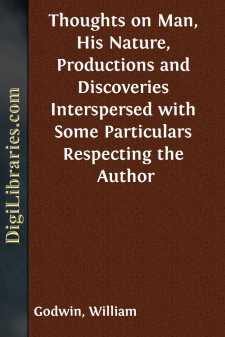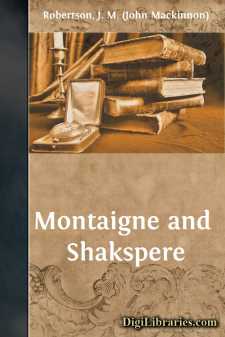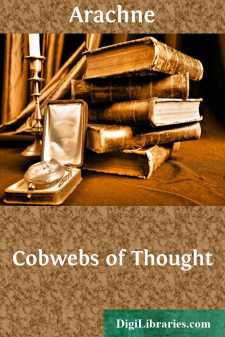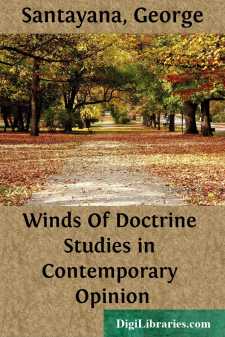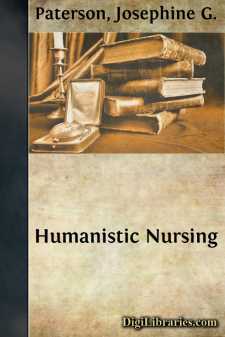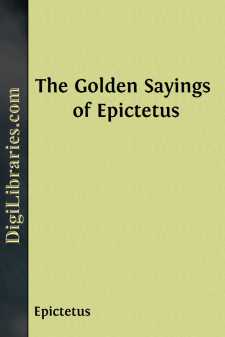Philosophy
- Aesthetics 11
- Eastern 1
- Ethics & Moral Philosophy 2
- General
- Hindu 2
- History & Surveys 3
- Logic 1
- Metaphysics 3
- Political 1
- Religious 7
- Social 3
- Taoist 1
General Books
Sort by:
I. INTRODUCTORY CHAPTER I THE MEANING OF THE WORD "PHILOSOPHY" IN THE PAST AND IN THE PRESENT I must warn the reader at the outset that the title of this chapter seems to promise a great deal more than he will find carried out in the chapter itself. To tell all that philosophy has meant in the past, and all that it means to various classes of men in the present, would be a task of no small...
more...
PREFACE In an essay on "The Problem of Philosophy at the Present Time," Professor Edward Caird says that "philosophy is not a first venture into a new field of thought, but the rethinking of a secular and religious consciousness which has been developed, in the main, independently of philosophy." If there be any inspiration and originality in this book, they are due to my great desire...
more...
by:
Confucius
INTRODUCTION Confucius was born in the year 550 b.c., in the land of Lu, in a small village, situated in the western part of the modern province of Shantung. His name was K'ung Ch'iu, and his style (corresponding to our Christian name) was Chung-ni. His countrymen speak of him as K'ung Fu-tzu, the Master, or philosopher K'ung. This expression was altered into Confucius by the Jesuit...
more...
by:
Samuel Butler
CHAPTER I: UPS AND DOWNS OF FORTUNE—MY FATHER STARTS FOR EREWHON Before telling the story of my father’s second visit to the remarkable country which he discovered now some thirty years since, I should perhaps say a few words about his career between the publication of his book in 1872, and his death in the early summer of 1891. I shall thus touch briefly on the causes that occasioned his failure...
more...
by:
William Godwin
PREFACE In the ensuing volume I have attempted to give a defined and permanent form to a variety of thoughts, which have occurred to my mind in the course of thirty-four years, it being so long since I published a volume, entitled, the Enquirer,—thoughts, which, if they have presented themselves to other men, have, at least so far as I am aware, never been given to the public through the medium of...
more...
MONTAIGNE AND SHAKSPERE For a good many years past the anatomic study of Shakspere, of which a revival seems now on foot, has been somewhat out of fashion, as compared with its vogue in the palmy days of the New Shakspere Society in England, and the years of the battle between the iconoclasts and the worshippers in Germany. When Mr. Fleay and Mr. Spedding were hard at work on the metrical tests; when...
more...
by:
Arachne
I. OUR IGNORANCE OF OURSELVES. Self-Analysis, apart from its scientific uses, has seldom rewarded those who have practised it. To probe into the inner world of motive and desire has proved of small benefit to any one, whether hermit, monk or nun, indeed it has been altogether mischievous in result, unless the mind that probed, was especially healthy. Bitter has been the dissatisfaction, both with the...
more...
by:
George Santayana
I THE INTELLECTUAL TEMPER OF THE AGE The present age is a critical one and interesting to live in. The civilisation characteristic of Christendom has not disappeared, yet another civilisation has begun to take its place. We still understand the value of religious faith; we still appreciate the pompous arts of our forefathers; we are brought up on academic architecture, sculpture, painting, poetry, and...
more...
Out of necessity nursing, as a profession, reflects the qualities of the culture in which it exists. In our culture for the past quarter of a century nursing has been assailed with rapid economic, technological, shortage- abundance, changing scenes' vicissitudes. In the individual nurse these arouse turmoil and uncertainty. These cultural stirrings inflame that part of the nurse's spirit...
more...
by:
Epictetus
I Are these the only works of Providence within us? What words suffice to praise or set them forth? Had we but understanding, should we ever cease hymning and blessing the Divine Power, both openly and in secret, and telling of His gracious gifts? Whether digging or ploughing or eating, should we not sing the hymn to God:— Great is God, for that He hath given us such instruments to till the ground...
more...


